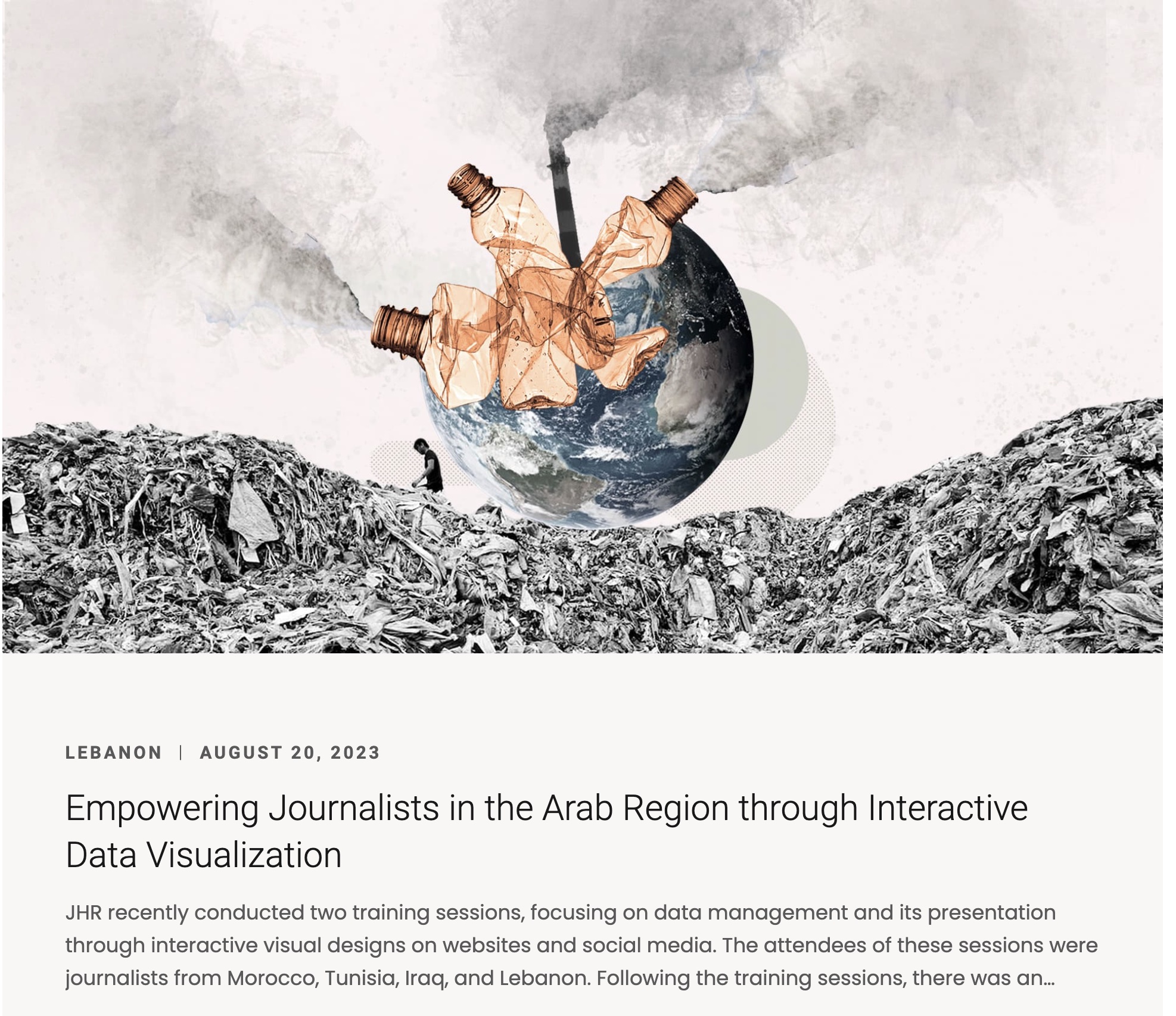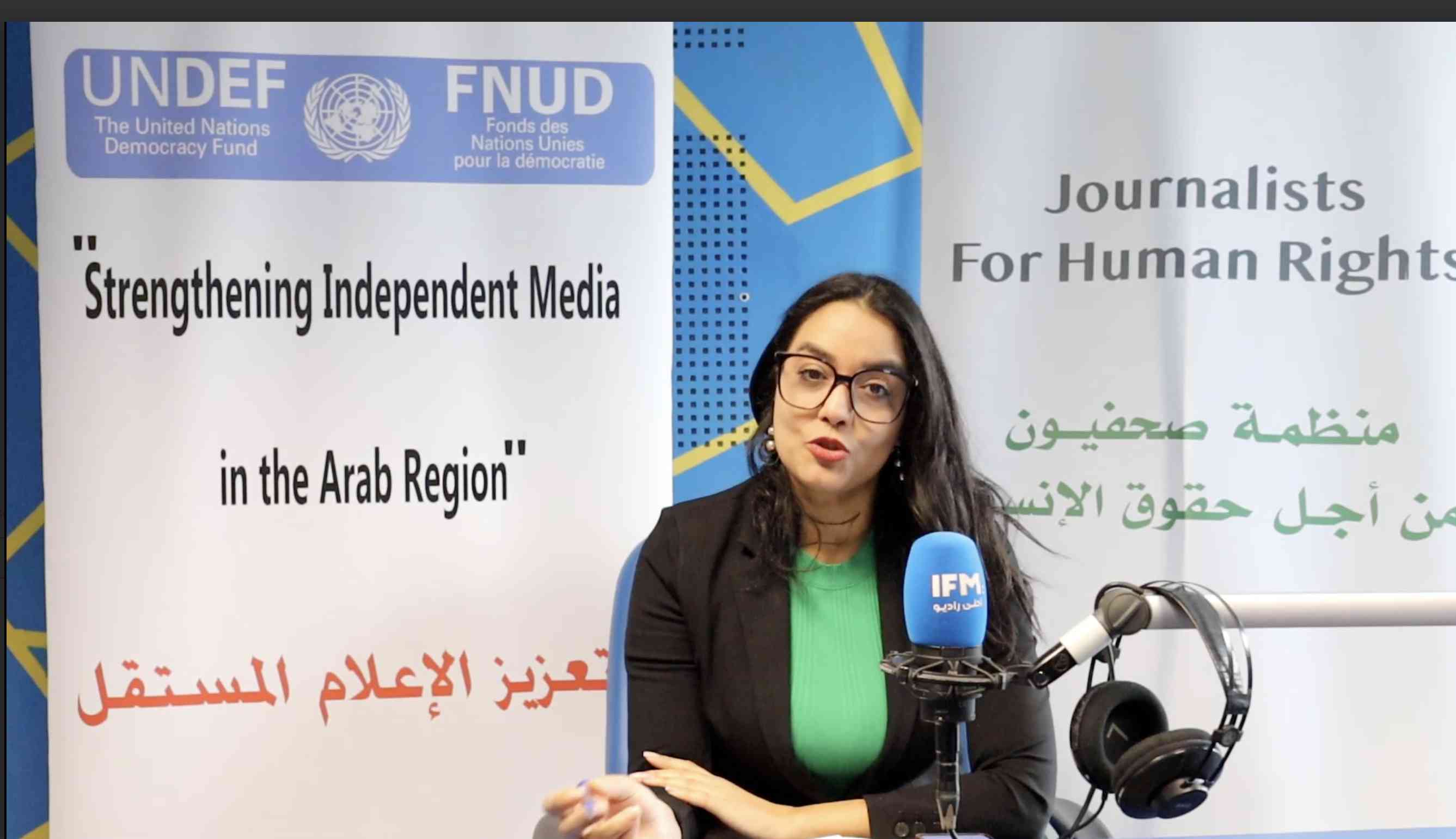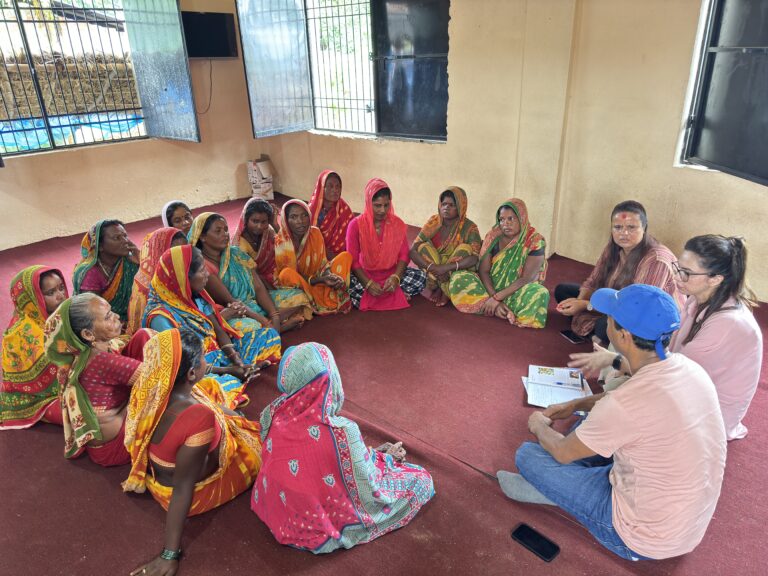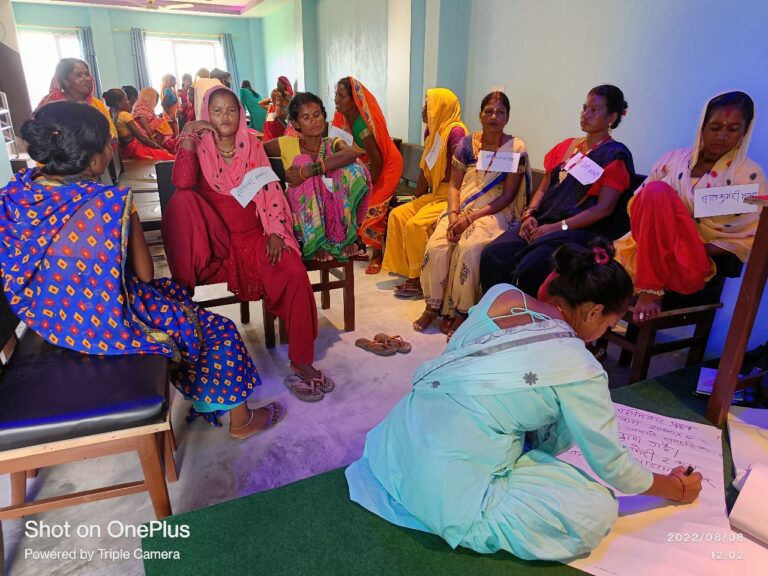Lesson Learned: Strengthening Independent Media in the Arab Region
Another multi-faceted benefit of regional partnerships are the synergies that are created on the national level stemming from local partners that bring different experiences and lessons learned to the fore. In this case, the Moroccan partner focuses on producing stories in multiple vernacular languages for community-level resonance and highlights the role of communitarian media as garnering legitimacy among listeners and readers at the local level. In Tunisia, the local office brings a large network of journalists, media professionals, and engaged civic organizations to the project that helps informing on navigating complex legal frameworks governing information access.
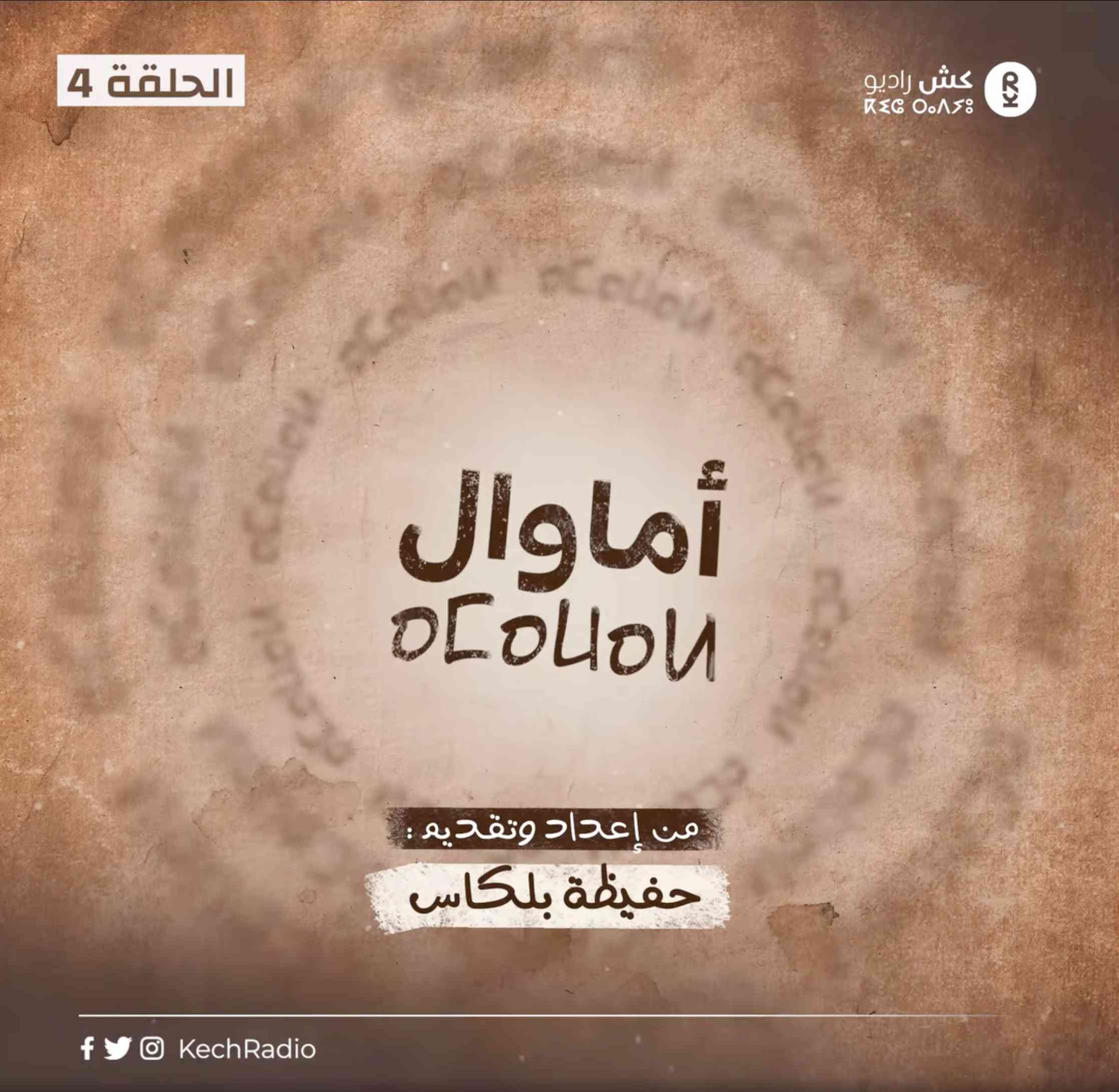
The project aims to strengthen independent media in the Arab region so as to build greater accountability and better governance, by improving the working environment for journalists; advancing media freedom and accessible information and data; enhancing the capacity of freelance and full-time journalists to cover sensitive human rights stories; and improving journalists’ legal knowledge through strong working partnerships with civic actors. Project activities also incorporate responses to the Covid-19 crisis for journalists on the front line.
